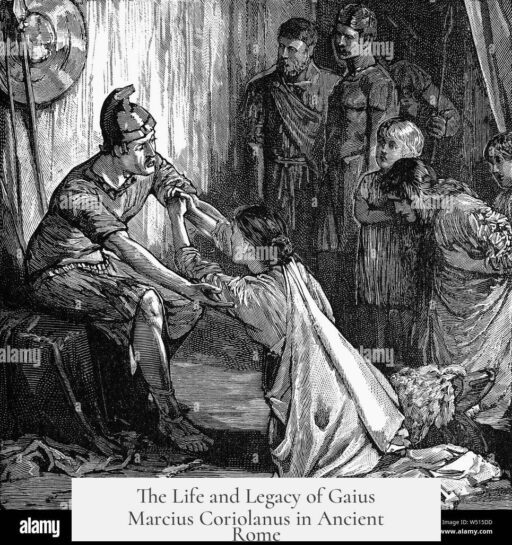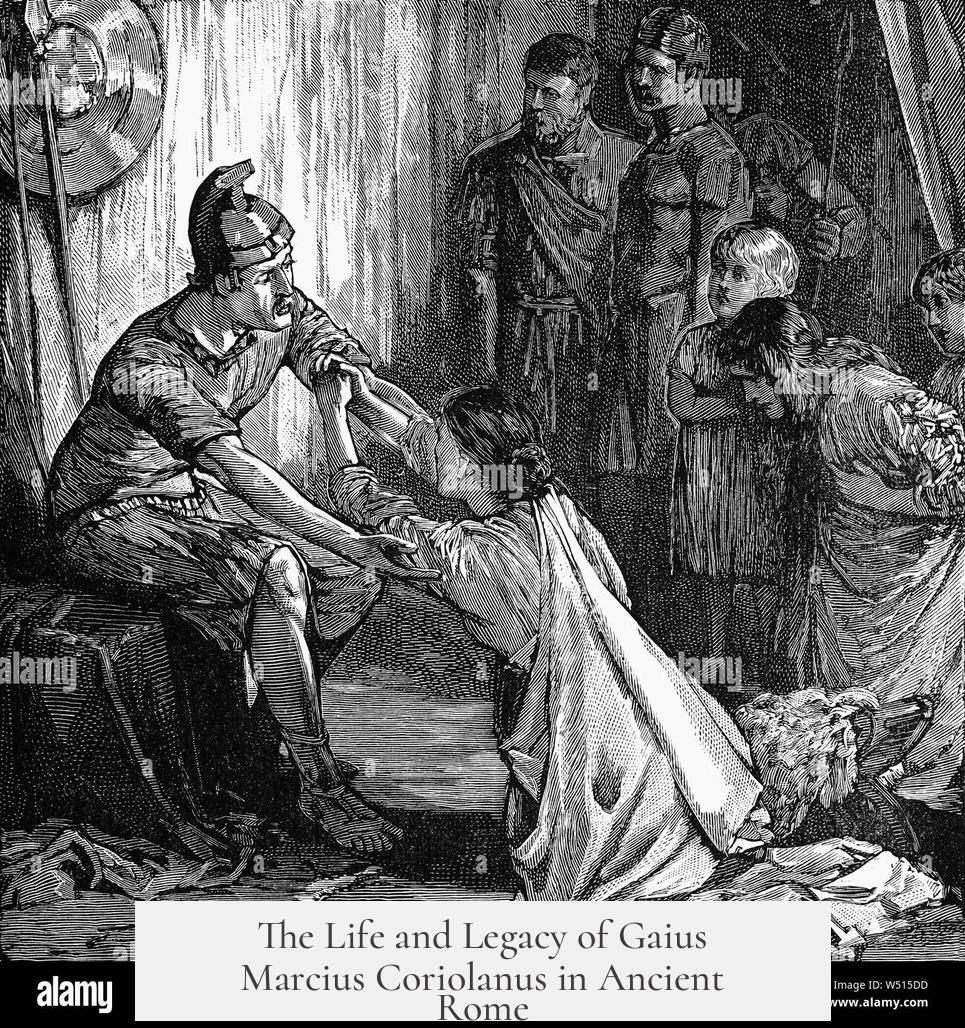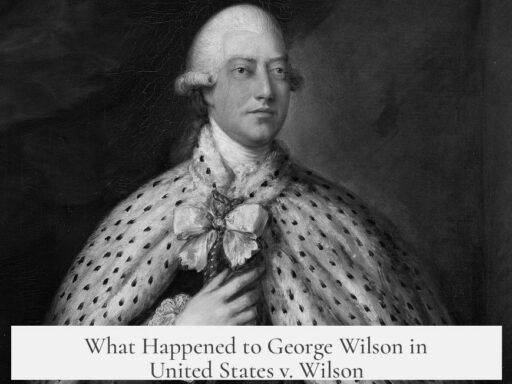Gaius Marcius, known as Coriolanus, is a semi-legendary figure from early Roman history whose actual existence is debated among historians. He appears prominently in Roman tradition as a patrician general who earned the agnomen “Coriolanus” after capturing the Volscian city of Corioli. However, modern scholarship treats his story with caution due to limited and conflicting ancient sources.
Two main attitudes characterize historical study of Coriolanus:
- Acceptance with Skepticism: This group holds that Gaius Marcius likely existed, though much attributed to him may be myth or invention. Key sources like Livy and Dionysius of Halicarnassus provide rich narratives but blend historical facts with folklore and Greek influences, making firm conclusions difficult.
- Extreme Skepticism: Some scholars reject the reliability of early Roman accounts entirely before the third century BCE. They argue these stories, including Coriolanus, derive from later oral traditions retrofitted into history by writers centuries after the events, such as Fabius Pictor, the first Roman historian.
Gary Forsythe, a modern historian, exemplifies the ultra-skeptical camp. In his 2005 work A Critical History of Early Rome, Forsythe questions the historicity of figures like Coriolanus, viewing the stories as largely mythical or influenced by Greek motifs. Meanwhile, T.J. Cornell, who adopts the more moderate skeptical view in The Beginnings of Rome, accepts that Gaius Marcius existed but advises caution when trusting the detailed accounts of his deeds.
The name “Coriolanus” itself comes from Marcius’s conquest of Corioli, a turning point in Roman-Volscian relations. The narrative often centers on his social conflicts with Rome’s plebeians, his temporary exile, and alliance with the Volsci against Rome, which some see as a reflection of political tensions in early Republican Rome.
Roman historians, especially Livy, portray Coriolanus as a figure with tragic flaws, caught between loyalty to patrician values and animosity toward the common people. However, scholars note that many Roman tales borrow elements from Greek stories, complicating attempts to separate fact from fiction. This Greek cultural influence likely shapes Coriolanus’s narrative, making it part historical and part literary legend.
For further research, R.M. Ogilvie’s A Commentary on Livy is recommended. It offers detailed analysis of Livy’s accounts, including the Coriolanus episodes, analyzing their historical context and reliability. These discussions help modern readers understand how early Roman history was constructed in later periods.
Beyond historical debates, Coriolanus has inspired cultural works, most famously Shakespeare’s tragedy Coriolanus. These portrayals explore themes of pride, political conflict, and exile but should not be confused with historical fact.
The key points about Gaius Marcius (Coriolanus) are:
- His existence is plausible but cannot be firmly proven or disproven due to scarce early sources.
- The detailed stories about him reflect a blend of history, legend, and Greek literary influence.
- The early Roman historical record is generally unreliable before the 3rd century BCE, which affects narratives about Coriolanus.
- Modern historians like Forsythe and Cornell provide contrasting views, valuable for understanding historical skepticism.
- Consulting primary historians such as Livy and critical commentaries helps differentiate between fact and fiction in the Coriolanus account.
Who was Gaius Marcius, also called Coriolanus, according to ancient historians?
He is known as a legendary early Roman figure. Ancient historians like Livy mention him, but details about his life are uncertain and often mixed with myth.
Can we trust the historical accounts of Coriolanus?
Most scholars are skeptical. They accept he might have existed but doubt the accuracy of the stories told about him, which are likely embellished or adapted from Greek tales.
What are the main scholarly views on Coriolanus’ historicity?
Two camps exist: one partly accepts his existence but doubts details, while the other is highly skeptical of any early Roman stories, including his, due to scarce early sources.
Which modern scholars provide critical analysis of Coriolanus?
Gary Forsythe offers an ultra-skeptical view in his book A Critical History of Early Rome. T.J. Cornell is more accepting but cautious in The Beginnings of Rome.
What role did Greek stories play in shaping Coriolanus’ narrative?
Romans often adapted Greek legends. Many believe the Coriolanus story borrows themes and elements from Greek myths rather than being a purely Roman tale.
Where can I find more detailed historical commentary on Coriolanus?
R.M. Ogilvie’s A Commentary on Livy is recommended for close scholarly examination of Livy’s account of Coriolanus and early Roman history.




